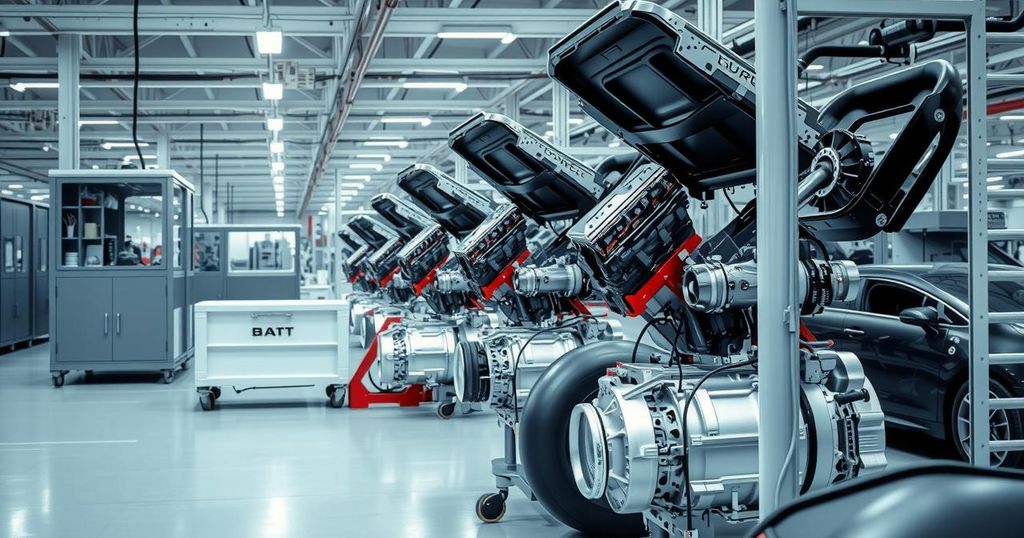Ford’s India Comeback Plans Complicated by New U.S. Tariffs

Ford has not advanced its production revival at its Chennai plant six months post-LOI due to U.S. tariffs. A 25% tariff on imported auto parts complicates its India strategy focused on engine and component exports. Uncertainty prevails about timelines and models, with the company delaying its strategy plans amid tariff implications.
Ford has not made significant progress towards restarting production at its Chennai plant, six months after signing a Letter of Intent (LoI) with the Tamil Nadu government. Industry experts suggest that recent U.S. tariffs imposed by President Trump have diminished Ford’s motivation to expedite its re-entry plans into the Indian market.
The Trump administration enacted a 25% tariff on imported cars and auto parts effective from April 3, impacting India’s $7 billion auto component exports to the U.S. This tariff applies to essential automotive components like engines, transmissions, and electrical systems, creating uncertainty for Ford’s operations in India.
Reports indicate that Ford may shift its Chennai operations towards producing and exporting engines and components globally, rather than cars. A source revealed that the company was initially expected to finalize its strategy by January, but this has now been delayed until at least the second quarter. Given the new tariffs, further postponements are possible.
In September 2024, Ford signed an LoI to restart vehicle manufacturing in Chennai with an export focus, driven by lobbying efforts from Tamil Nadu officials. However, doubts remain about the viability of this plan in light of tariff implications on investments in overseas production.
An industry veteran expressed concerns, emphasizing that the unexpected tariffs deter U.S. firms from investing in foreign manufacturing. As of now, Ford has not responded to inquiries regarding the influence of tariffs on its plans for the Chennai plant.
Before its exit from Indian manufacturing in September 2021 as part of a global restructuring, Ford operated the Chennai facility, which had a significant production capacity. The shutdown affected over 4,000 employees, although Ford continues to manufacture engines for export from its Sanand facility in Gujarat.
There were speculations about potential vehicle models being produced in Chennai, like the Endeavour and Everest, but these have seemingly been replaced by a focus on engine production. Ford has not yet outlined any definitive timelines or models for its Chennai operations, leading to further uncertainty.
Ford’s efforts to re-establish production in India are hindered by recently imposed U.S. tariffs, casting doubt on its plans following a signed Letter of Intent with Tamil Nadu. The tariffs not only complicate Ford’s strategy but also reflect broader challenges for American manufacturers considering overseas production. The future of Ford’s Chennai plant remains unclear as the company has not committed to specific plans or timelines.
Original Source: www.financialexpress.com





